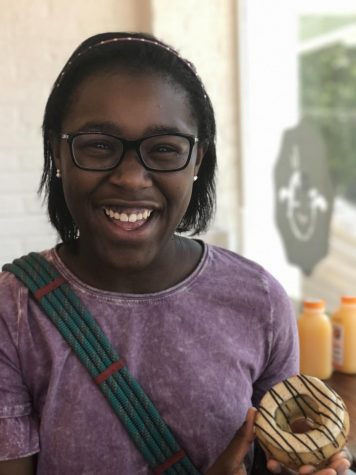
Have you ever found yourself with a pint of ice cream in hand after a difficult breakup or a tough exam? Or maybe you have found yourself eating past fullness at a delicious meal with friends or at a big celebration? These eating practices are absolutely normal!
As a society, we have come to vilify emotional eating, and often confuse it with the disordered behavior that is binging. Overeating is when you eat past feeling full, whereas binging is eating an excessive amount of food in a short amount of time, and you feel out of control. Because of a culture that promotes restriction of food, it is easy to confuse eating more than usual with the out of control feeling of a binge.
The fifth principle of intuitive eating is honoring your fullness, but this can be tricky with patterns of disordered eating. If you are just beginning to honor your hunger cues, feelings of fullness may come before your body has had enough food. Before you can honor your fullness, you must first learn to honor your hunger and reattune with your body’s natural cues. Fullness is different than overeating and binging, and the first two are normal parts of a healthy relationship with food.
Factors to consider when thinking about whether or not you overate or had a binge are whether you felt unable to stop eating and the amount of time it took to eat the amount of food. Although it can be helpful to distinguish between overeating and binging, the most important point is to better understand your relationship with food and how it is affecting your life.
Emotional eating is not inherently bad by itself, but the goal of an intuitive relationship with food and the body is to empower the individual to have a plethora of coping mechanisms so that food is not the only way one can cope with difficulties. Emotional eating can be one way of coping, like going to Jeni’s after a tough exam, baking and eating warm cookies after a rough breakup or having your mom’s “comfort food” during a time of transition to remind you of feelings of warmth and love.
Another question to ask yourself when considering your eating habits is how aware you are of when you are using emotional eating to cope, especially if this is in place of confronting uncomfortable emotions. Other times it is important to look at the root emotions that are driving our eating behaviors. Another consideration is that if you are constantly “emotionally eating,” it is possible that you are not eating enough consistently throughout the day. Restriction leads to binge-eating as the body begins to up its cravings when it is deprived of enough food, in order to store it for later instances of restriction.
Consistent episodes of binges can indicate a deeper eating disorder at play, and there is no shame in this. Binge eating is actually the most common eating disorder, and it is pathological, or harmful for the body. Binge eating disorder can be found in persons of all shapes and sizes, and college students are at risk for the development of eating disorders. There is a lot of stigma around binge eating and overeating, and eating in general, and the prevalence of eating disorders continues to increase in college students, and Vanderbilt is no exception. Thankfully, there are a lot of community resources in the Nashville area to seek help.
Eating is inherently an emotional experience in many ways. When we eat with friends, we connect those emotions to the food we are eating. The smell of a bowl of mac and cheese or a warm brownie may remind us of our childhood, and loving emotions may come to mind. The taste of a Commons omelette or a caprese panini at Grins may remind you of the community you have built with the people around you. Eating can help you feel connected to your body and to others who share those food experiences with you, and is part of a full and engaged life.


